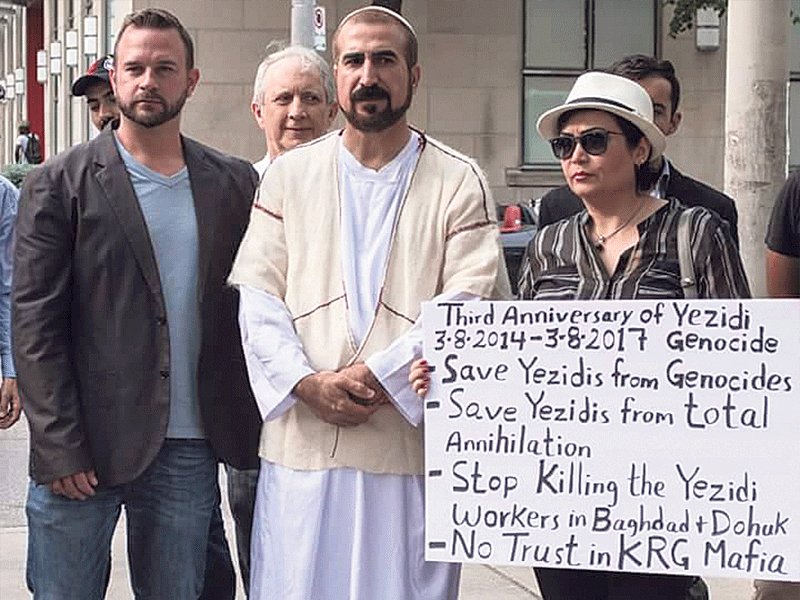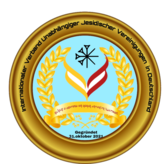M has been in Canada for a few months now, but she is still afraid to sleep the whole night through.

M – who asked not to use her real name, as she still has relatives in Iraq – and her sister-in-law, G, take turns sleeping, with one always on alert, lest their home be invaded by Islamic State thugs.
M’s three-year-old son, a cute little boy who likes to cuddle in his mother’s arms, gets agitated when he sees a man with a beard or bushy hair, or a woman wearing a niqab, she said, speaking through an interpreter. “I’m afraid. It’s ISIS,” he tells her.
M and G lived for two years as ISIS sex slaves, reuniting back in their Yazidi homeland in northern Iraq after they took different, though equally perilous, paths of escape.
They’ve lived in Canada a short time, crowding into a modest bungalow in the Toronto area with other Yazidi families, while they get their feet on the ground.
Their stories are harrowing, but not atypical of what befell the Yazidi people when ISIS gave them the full jihad treatment.
As a non-Muslim population, Yazidis were persecuted, murdered and the women raped by members of the Islamic State. Thousands of women who survived were taken as sex slaves. M was sold in a makeshift market in Syria. She was traded or sold three times before she found herself in Mosul, Iraq, where she made her escape, along with her young son.
She credits her son, who was practically a newborn when she was abducted, for keeping her alive.
“Some Yazidis kill themselves, but she couldn’t,” the interpreter, Hayder Essw, explained. “She had a son that she had to worry about.”
READ: SHAPOVALOV MAKES HISTORY AT MONTREAL ROGERS CUP
“Another woman, who was trained to be a doctor, killed herself, rather than be a sex slave,” he said.
G did not see her daughter, now five, for two years while she was in captivity.
M was captured after her village surrendered to ISIS. The surrender was preceded by negotiations, during which the Yazidis were assured that if they agreed to convert to Islam, they would be spared. They were told to bring all their gold and money to a central location, but once their valuables were turned over and ISIS was assured there would be no armed resistance, the Yazidi men, including M’s husband, were shot and the women and children were taken into captivity.
On Aug. 3, the Yazidi community, along with Jewish supporters and others, held a rally in Toronto to commemorate the third anniversary of the Yazidi genocide.
Mirza Ismail, founder and president of Yezidi Human Rights Organization – International, said the event is also meant to draw attention to the Yazidis’ plight and pressure the Canadian government to help.
“We believe we are being abandoned by the world. Nobody is doing anything to make it better for the Yazidis to go back to (their homeland),” he said. “We still have 3,000, mostly women and children, in captivity, mostly in Iraq and Syria,” Ismail said, though others have been sold to ISIS men in Yemen, Saudi Arabia, Libya and Qatar.
Ismail said Canada has taken in only about 1,200 Yazidis and other persecuted minorities, and should do more.
The Jewish community has been sympathetic to the Yazidis’ situation, because they also experienced genocide, he said.
Several Jewish supporters participated in the Aug. 3 rally. Geoffrey Clarfield, the executive director of the Mozuud Freedom Foundation and one of the speakers at the rally, said his organization would like to see priority given to Yazidis wishing to immigrate to Canada, noting that once here, Mozuud volunteers assist in the integration of new arrivals.
M, who is struggling to adapt to her new home, remains troubled by the situation facing Yazidis.
“I know we’re in safety, but many Yazidis in Kurdistan are not safe,” she said. “I would want Canada to bring them here.”
